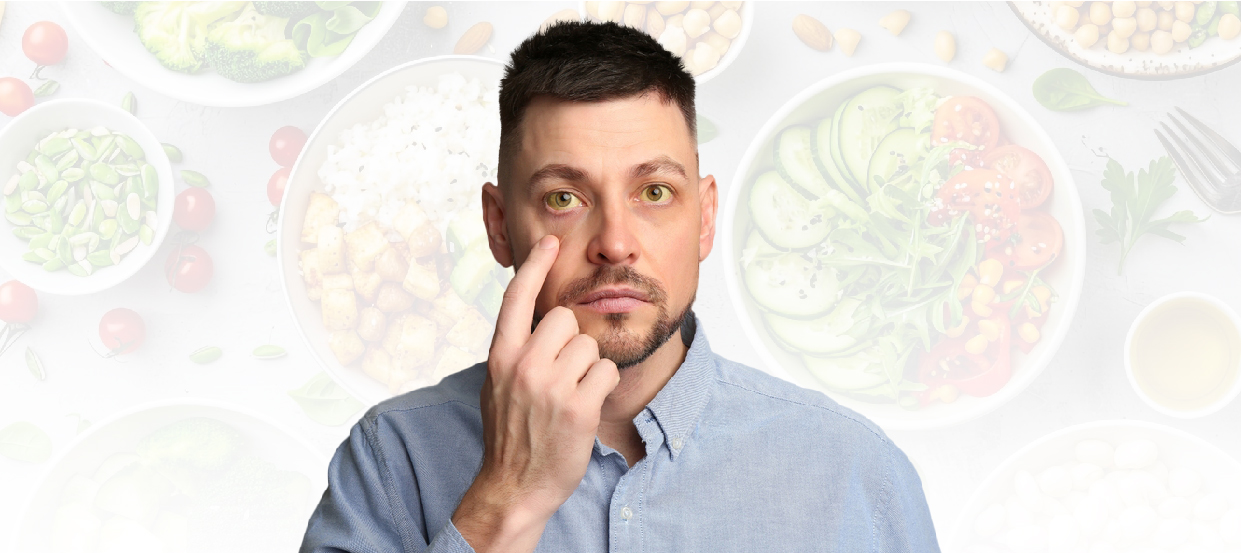
Jaundice is described as the yellowish discoloration of the skin, sclera, and mucous membranes caused by a high bilirubin level in the blood. Jaundice occurs when the liver cannot efficiently break down bilirubin, a yellow pigment produced from the breakdown of red blood cells. Some of the factors that cause Jaundice include; viral hepatitis, cirrhosis, liver infections, Gallbladder, or pancreatic disorders. Besides taking medications, diet is another important pillar, which affects the condition of the liver, and the treatment of jaundice. In this blog, we will discuss about the ideal diet chart for jaundice patients, what foods to add and avoid to support liver health and aid in faster recovery.
For jaundice patients, to help the liver recover faster, there should be an increase in nutrient intake while at the same time avoiding foods that are hard to digest to ease the load on the liver. Here is a list of foods that should be added to the diet chart for jaundice patients:
Fresh fruits and vegetable intake should be encouraged since they provide numerous nutrients that are helpful in liver detoxification and rebuilding.
Complex carbohydrates and dietary fibers mostly found in whole grains do not cause up and down movement in blood sugar levels as well as ease digestion thus helping the liver to do less work.
Protein is essential in regeneration of the damaged liver tissue as well as the preservation of muscles; go for lean proteins.
According to DH and PAS, moderate consumption of healthy fats is essential for the liver since these fats facilitate the absorption of fat-soluble vitamins including vitamins A, D, E, and K for tissue healing.
One needs to take a lot of water to ensure that the liver is well supported in its role of flushing the system. These enable the body to wash out toxins and also assist in improving the digestion process.
As the liver tries to heal, it is recommended to avoid foods that are hard to digest, cause inflammation, and foods which are toxic to the liver. Here is a list of foods that are restricted in the diet chart for jaundice patients:
Oiling foods are known to be rich in bad fats that are likely to overload the liver's capacity to metabolize fats. These foods cause inflammation, weight gain, and fatty liver disease, which will make jaundice worse.
Saturated fats and trans fats present in processed meats, full-fat dairy products, and baked products among others overload the liver and cause fat deposition and deterioration of liver function.
There are certain foods that we eat that cause irritation to the stomach and this means that when a patient takes spicy foods then he or she is likely to worsen the symptoms such as nausea and discomfort. When one is healing out of jaundice, one must eat foods that are soft and do not need much digestion.
Alcohol is toxic to the liver, even more, so if the liver is already damaged in some way. Alcohol in moderation is particularly dangerous to the liver and in treating jaundice cases; their intake ought to be abstained during the period of healing.
Most foods that come in sachets and are packed are usually associated with high content of unhealthy fats, sodium, and sugar. Sick individuals suffering from conditions such as jaundice for instance can hugely benefit from this list of foods as they help add weight, increase cholesterol in the body, and complicate the liver making it harder to recover.
Below is one such diet plan that gives a clear idea about the kind of food to be taken for the nourishment of the liver during jaundice recovery.
Managing jaundice involves a combination of medical treatment and dietary adjustments that support liver function. A balanced, nutrient-rich diet filled with fruits, vegetables, whole grains, lean proteins, healthy fats, and ample fluids can promote healing and improve overall well-being. By avoiding fatty, fried, spicy, and processed foods, you can give your liver the break it needs to recover. Always consult with a healthcare provider for individualized dietary guidance, and remember that a healthy diet, when combined with medical care, is essential for a full and speedy recovery from jaundice.
For effective jaundice treatment in Pune, look no further than Dr. Abhishek. Schedule your consultation now.